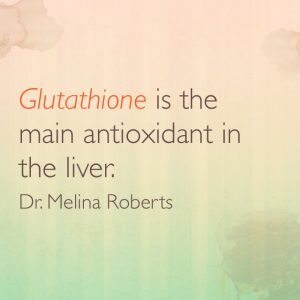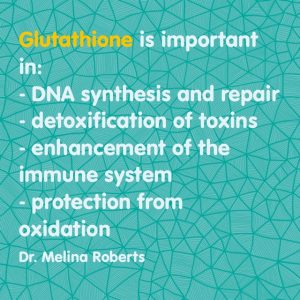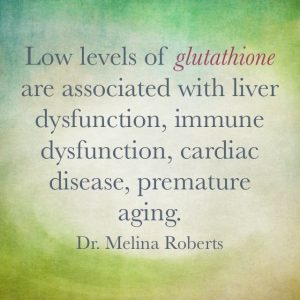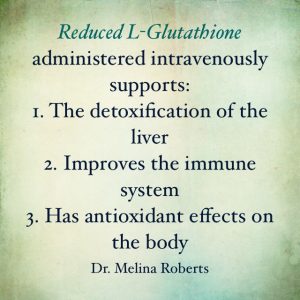Glutathione is the main antioxidant in the liver. All cells can synthesize glutathione, but the highest concentration of glutathione is in the liver. Glutathione is a tripeptide composed of glutamic acid, cysteine and glycine that is needed for phase I and II detoxification in the liver and supports to the immune system. It provides antioxidant protection for the body’s tissues including the arteries, brain, heart, liver, lungs and skin.
Glutathione is important in:
- DNA synthesis and repair
- detoxification of toxins
- enhancement of the immune system
- protection from oxidation
It has been shown to significantly improve patients with early Parkinson’s disease. As glutathione levels decrease, the ability of the body to eliminate toxins also decreases. Low levels are associated with liver dysfunction, immune dysfunction, cardiac disease, premature aging.
Reduced L-Glutathione administered intravenously supports:
- detoxification of the liver
- improves the immune system
- antioxidant effects on the body




